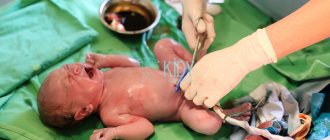Speech is a form of communication between people using linguistic structures. When a child is born, he does not know how to do anything and the task of an adult is to teach him everything. Teach to walk, hold a spoon, a mug, go to the potty and talk. While everything else is more or less clear, parents always have a lot of questions regarding speech. What to do if the child does not speak? If he speaks “his” language? And many, many different questions. Today we’ll talk about speech development, speech delays, examinations and more.
About speech understanding
Speech understanding is one of the criteria for assessing a child’s speech, and no less important. The child may not speak, but can fully understand speech.
Speech comprehension should also be age-appropriate.
How to determine that a child understands speech?
The assessment of the speech understanding criterion occurs at 1 month of the child’s life.
- At 1 month, the baby flinches from a voice or sound.
- At 2 months, expresses anxiety about sounds or voices.
- At 3 months, looks at the speaker.
- At 4 months, he turns his head towards the speaker and stops crying when he is reassured by speech.
- At 5 months he begins to respond to his name, but this is only if he was previously addressed by name, and not just “baby”, “bunny” and so on, otherwise he will respond to the baby and the bunny.
- At 6 months he stops when he hears the word “no” and begins to use gestures. This does not mean that the child understands what you mean by “no.” Gestures are one way of speaking, for example, when a baby reaches out to be picked up.
- At 7 months, looks at a familiar object when it is named. Use question designs like: “Where is the bird?” Where's dad? We also teach the concept no: “Where is the bird?” - the child looks at the sky - “there is no bird.” And we show our heads no. At 7 months, the child realizes where he is; to do this, we bring him to the mirror, look at him and show him, calling him by name.
By the age of one year, a child’s vocabulary is 5-9 words, of course, it can be more. These words do not appear immediately at 12 months, but gradually. The first words can appear at 6-7 months, such as “whoa - cat”, “bang - fell”, “ss - chest” and the like. If all this is missing, it is too early to talk about delayed speech development, check your hearing and continue to develop and educate your baby.
There may be not a single word at all, and this will also be a variant of the norm, since the assessment is also determined by the understanding of speech.
It is not normal if per year:
- no babble
- does not point to the object
- does not use gestures.
You can't tell a child
- I don't understand you,
- what are you whispering there?
- speak louder and clearer!
The child should know that you always understand him, even without words.
If the child’s speech level does not correspond to the norm, most likely he was not taught and this is also a variant of the norm. It is possible to train.
How to help a child talk?
First of all, show your baby to a pediatrician, otolaryngologist and neurologist to rule out physiological causes of lack of speech. If there are problems, begin treatment immediately. The more time is lost, the more difficult the path to recovery will be.
If the doctors have concluded that the child is completely healthy, then you need to create a favorable environment around him for the development of speech. How to do it?
Talk to your baby.
Children learn to speak by imitating adults. Some parents believe that the baby does not understand their speech, which means it is useless to talk to him. But that's not true. The child absorbs every word. Therefore, try to talk kindly to your baby while he is awake, and it is important that he clearly sees how your lips move when articulating sounds.
Talk to your baby correctly.
Pronounce sounds clearly and speak slowly so that the child has time to isolate individual words from speech. Comment on your actions, name and describe the objects you pick up, try to use ordinary words mixed with onomatopoeic words (such as am-am, bo-bo) and simple syntactic structures, but do not lisp or distort the sound appearance of the word. Speak as if you are expecting an answer from your baby.
Read, listen, sing
While your child is awake, play audio recordings of children's songs. Before bedtime, read fairy tales aloud to your child. Sing simple songs and nursery rhymes with him, recite short poems and nursery rhymes. All this enriches the child’s vocabulary and helps him master the grammar of his native language.
Ten to twelve months is the ideal time to introduce your baby to a book. Just choose “shockproof” editions with pages made of thick cardboard or textiles and large, bright pictures. Give your child the opportunity to play with the book, leaf through it, and look at the illustrations. When reading books, try to interest your listener, ask questions like “Where are the bunny’s ears? Where’s the nose?” etc. Special albums for speech development will be especially useful for your classes.
Put away the TV, gadgets and talking toys
All kinds of educational cartoons, tablet games and interactive toys, no matter how cool and expensive they are, only distract the child from what is happening around him. Give your baby the opportunity to explore the world around him independently. Give him the simplest “silent” toys - blocks, pyramids, textile animals and dolls. Let your child become the creator of the game, rather than a passive observer pushing a button.
Why doesn't he speak?
In fact, “does not speak” is a rather loose concept. Let's give examples.
- The child does not utter any words at all, not even “yes” and “no.” For a 1.5 year old this is normal, but for a 4 year old child this is already a problem.
- Doesn't speak sentences. For 2.5 years it will be the norm. At 4 years old you already need to worry.
- The child understands spoken speech, fulfills requests and instructions, regardless of complexity, but does not speak.
- The child talks a lot, but in “his” language.
- The child speaks, but those around him do not understand him, because he replaces many sounds.
That is, in each situation the concept of “does not speak” will be different. And here it is important to understand the reason, find an approach and correct it. In some cases, it is possible to involve more specialized specialists.
It is important to understand that in the process of speech formation, understanding it is more important than pronunciation.
Reason 1. Individual pace
Of course, every child is unique and must develop on their own schedule. If your baby went a month earlier than your neighbor’s son, but said the word “mom” a few weeks later, there is nothing wrong with that. Everyone has their own pace.
This delay in speech development is called tempo. With a slight delay, everything will return to normal and the child will develop his ability to speak in the same way as all children.
Just pay attention that experts “allow” only a slight lag from the norm to be attributed to individuality. Be careful!
What to do if he doesn't speak?
- Do not put pressure on the child.
- Constantly provide information to the child.
- Communicate with your child on any topic.
- Do not lisp and pronounce words clearly.
If the baby does not speak at all or does it poorly, there is no need to constantly ask him to say something, especially contact him with the word “tell.” Most likely the child cannot say something and hardly wants to. That is, he wants to, but he can’t.
It is important to remember that:
- Some walks, starting from 3-4 months, should be in the wakefulness interval.
- An adult should comment on some of the actions, but not like a radio, but if he were telling a 3-4 year old child. For example: “Let’s go have lunch and then go for a walk.”
- From birth we conduct a DIALOGUE with the child, not a monologue. That is, we give a pause and wait for an answer from the child, even if this does not happen. Someday he will definitely answer, be patient.
The most important thing is to praise the child if he himself simply uttered a word, sound or syllable, even if there are mistakes and it is not clear, he is still doing well because he is trying. It is also important to maintain a conversation when a child tells you something, even in his own childish language, but he must see feedback, interest, that mom and dad understand him, even if this is not the case. "Wow! Is it true? That's the story!" - this will be enough for a wave to maintain a conversation with the baby.
When should you sound the alarm?
You should really worry if:
- the child does not show interest in the world around him;
- he does not recognize mom and dad, family members living with him;
- there are severe hereditary pathologies in the family;
- the baby does not know his name, does not respond to speech and sounds;
- his fine and gross motor skills are not developed, for example, he cannot pick up a toy;
- the child does not respond to adult speech and does not fulfill simple requests;
- There are risk factors - difficult childbirth, difficult pregnancy, central nervous system pathologies, hearing and vision impairment.
Experts identify the following reasons for the lack of speech at one year of age.
- Difficult pregnancy, difficult childbirth, intrauterine infections, maternal use of certain medications, alcohol, illegal substances - all this can cause disturbances in the functioning of the central nervous system.
- Pathologies of hearing and vision - if the child does not see or hear the world around him, it is difficult to expect any response.
- Pacifier obsession: If the mouth is constantly busy, the baby will communicate with parents using gestures and mooing. There is simply no need for articulate speech.
- Pedagogical neglect: a child should be taught to speak from the first days of life, so that he knows how speech is created and sounds.
- The other extreme is the baby’s overload. Many parents begin to work intensively with their child from birth and literally demand his first words. Silence in this case is an expression of protest.
- If several languages are used in the family at the same time, then the child needs some time to figure out which one he should learn to speak.
What is ZRR and how does it manifest itself?
SRD is a delay in speech development. In order to suspect that a child has a developmental disorder, certain signs must be present.
- At 12 months: little babbling, the child is quiet.
- At 18 months: does not understand his own name, the names of surrounding objects, or the calls “come here”, “sit down”.
- At 2 years old: uses individual words in a limited number, does not try to repeat words.
- At 2.5 years: does not know the names of body parts, environmental objects; upon request, cannot name an object or bring something within sight; cannot form simple two-word phrases, for example, “I’m hungry.” Often the child is misunderstood.
- At 3 years old: does not speak simple sentences (subject, predicate, object), does not understand simple explanations or stories about events in the past or future.
It is worth noting that a significant delay in speech development is typical for children with general developmental delay.
That is, in most cases, the fact that a child does not speak does not mean the presence of SDD.
The diagnosis of SDD can be temporary, for example, when a child at 2 years old speaks less than 50 words. This diagnosis will be temporary and means that a healthy child has minor speech problems and all that is needed is to talk to the child more.
Reasons why a child does not speak
The main reason why a boy or girl, son or daughter, son or daughter, son or daughter (daughter), a child does not speak is intrauterine hypoxia, or lack of oxygen. Lack of fetal oxygen can occur during pregnancy, during childbirth, and during caesarean section. In this case, an experienced microneurologist , pediatric neurologist , pediatric neurologist makes a diagnosis of “perinatal encephalopathy of post-hypoxic-ischemic origin” or “perinatal encephalopathy of mixed origin” (perinatal damage to the central nervous system). Perinatal encephalopathy can be grade 1, 2, 3.
Stage 1 perinatal encephalopathy with timely and comprehensive treatment at Sarklinik is completely cured in a fairly short time. Stage 2 perinatal encephalopathy is a serious disease that requires long-term serious treatment. Stage 3 perinatal encephalopathy usually has serious consequences, including the development of pathology such as cerebral palsy. Frequent causes of delayed speech development in children are pathology of the mother during pregnancy, birth trauma of the child, difficult childbirth, poor results of neurosonography, entanglement of the umbilical cord, breech presentation of the fetus, weakness of labor, anatomically or clinically narrow pelvis, somatic diseases of the mother before and during pregnancy, maternal infections, fetal infections, toxic effects on the child's brain of bilirubin in hemolytic jaundice of the newborn (HDN), intoxication with anesthesia during cesarean section, intoxication with drugs (drugs) in the perinatal period. Any somatic pathology, ARVI, bronchitis, tracheobronchitis, infections, rickets, metabolic disorders lead to the fact that at a later age the child does not speak , the child speaks poorly , the child speaks little , the child is silent , begins to speak late, speaks little, is not clear , incomprehensible, retarded in development, retarded in speech, mental, psychomotor, psycho-speech development, mental development.
There is RRD (retardation, delayed speech development, including severe delay in speech development), ZPR (lag, delayed mental development), ZPRR (delayed psycho-speech development in children), PMR (delayed psychomotor development in a child), ZUR (mental retardation). development in children). Rarely, a child is influenced by hereditary factors in which developmental delay was observed in the mother or father, or in both. Any weakening of the child’s body, decreased immunity, side effects of vaccinations (vaccines) can lead to the fact that “ the child does not speak .” Also, a child’s speech development is negatively affected by an unfavorable environmental situation in the area where the mother and child live, an unfavorable climate in the family (conflicts between parents), defective, unclear speech in a contact environment (speech problems among relatives or parents), the birth of a second child in the family, the presence of severe severe neurological diseases (for example, cerebral palsy). With delayed motor development, there is often a delay in speech development, and later a delay in mental development. With any damage to the organ of hearing, a condition in which “ the child does not speak ” is also noted. In this case, you need to consult an otolaryngologist (ear-nose-throat-doctor).
Who needs examinations?
Examinations are needed if the doctor suspects a child has speech development delay (SDD). Not all children who do not speak have this delay and not all children need testing.
If RRR is still suspected, then the following examinations are necessary.
- Examination by a pediatrician.
- Examination by a neurologist.
- Examination by a psychiatrist (included in the medical examination of children 2 years old).
Research carried out according to indications.
- Electroencephalogram (EEG and sleep monitoring. In very rare cases, a child experiences developmental regression and this is associated with a large amount of epiactivity on the EEG during sleep, when the child does not have epileptic seizures.
- MRI.
- Genetic tests.
- Examination by an audiologist, audiometry,
- Acoustic Spectrum Disorder Test.
Treatment of children with delayed speech development, how to treat children with speech disorders
Fortunately, Sarklinik has treated hundreds of children with delays in speech, psycho-speech, mental, motor, and psychomotor development. Treatment of alalia, treatment of dyslalia, treatment of general speech underdevelopment, treatment of dysgraphia, treatment of acalculia, treatment of encopresis, treatment of perinatal encephalopathy, treatment of tone disorders, treatment of akataphasia, treatment of akatagraphy, treatment of intracranial hypertension syndrome, treatment of dyslexia, treatment of autism, treatment of cerebral palsy, treatment are provided. enuresis, treatment of minimal cerebral dysfunction in Russia, in the Saratov region, in Saratov. Sarklinik knows how to teach a child to speak, how to treat and cure a child, how to treat delayed speech development in a child , how to treat delayed psycho-speech development in children, how to cure delayed neuropsychological development, how to give impetus to speech development, how to replenish vocabulary, how improve speech. Treatment methods have proven themselves over the years. Severe, moderate, and mild delays in psycho-speech development, and mental retardation are treated. Sarclinic works with serious diagnoses, when parents have less and less hope for recovery. Unfortunately, in such cases, as a rule, multiple courses of complex treatment are required, as a result of which memory, thinking, speech, mental development, motor sphere, and motor activity are improved. There is extensive experience in treating children with pediatric pathologies aged from 3 months to 17 years. There are plans to publish a video course “ How to teach a child to speak ?” On the medical website sarclinic.ru you can ask a doctor a question online for free and read patient reviews. Help your child right now!
There are contraindications.
Specialist consultation is required. Sign up for a consultation .
Text: ® SARCLINIC | Sarclinic.com \ Sarlinic.ru Photo: (©) Hyrman | Dreamstime.com \ Dreamstock.ru The child depicted in the photo is a model, does not suffer from the diseases described and/or all similarities are excluded.
Related posts:
What is the proper weight (body weight) and height of a child by month, year: table, norms
Why does a child stand on tiptoes, toes, poorly on his legs, not worth it: what to do, how to treat, stand
New in the treatment of Tourette syndrome in Russia
Mental retardation in children: moderate, mild, severe, profound, mental retardation, dementia, treatment
Enuresis in adolescents, teenage enuresis, treatment of enuresis










